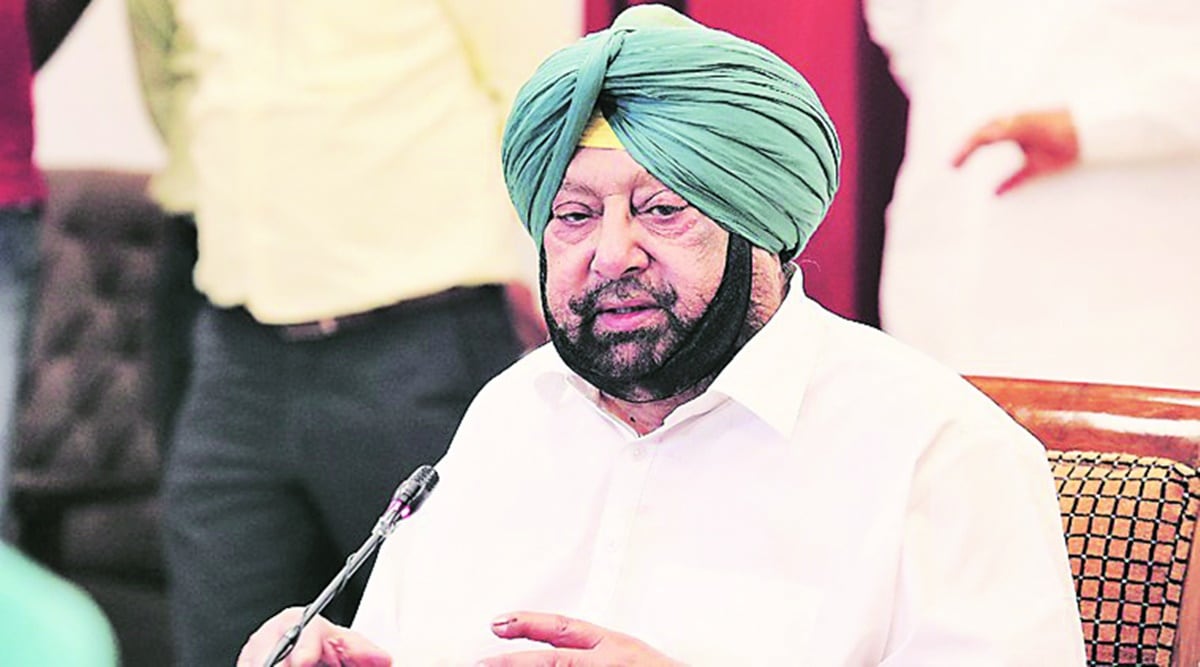 The Cabinet, chaired by Chief Minister Amarinder Singh, gave nod to amend the Industrial and Business Development Policy, 2017. (Express File)
The Cabinet, chaired by Chief Minister Amarinder Singh, gave nod to amend the Industrial and Business Development Policy, 2017. (Express File) Seeking to promote post-Covid industrial revival and attracting greater investment, the Punjab Cabinet Friday approved an amendment in the 2017 industrial policy to enable investors to avail Goods and Service Tax incentives till October 2022.
The Cabinet, chaired by Chief Minister Amarinder Singh, gave nod to amend the Industrial and Business Development Policy, 2017. The fiscal incentive under the present policy was only applicable for investment proposals received by March 31, 2020. With the Cabinet decision, the GST formula shall be extended for availing incentive under industrial policy till October 17, 2022 (till the applicability of policy).
Notably, the Industrial and Business Development Policy-2017 was formulated and notified on October 17, 2017 to provide the incentive of investment subsidy by way of reimbursement of net SGST.
The move, as per a government spokesperson, is also prompted by feedback from certain industry associations for extending the last date of claiming the GST incentive and make this last date as coterminous till the expiry of the industrial policy.
(FRBM) ACT 2003 TO BE AMENDED
To avail the benefit of additional borrowing of 2 per cent of Gross State Domestic Product (GSDP) in 2020-21, the Cabinet also gave nod to amend provision of the Punjab Fiscal Responsibility and Budget Management (FRBM) Act, 2003.
Notably, the government of India has allowed 2 per cent of GSDP, of which 0.5% was unconditional and the remaining 1.5% was conditional in respect of reforms that include implementation of one nation one ration card system; ease of doing business reforms; urban local body/utility reforms and power sector reforms.
NOD TO AMED INVESTMENT PROMOTION ACT
The Cabinet in another decision gave the nod to amend the Punjab Bureau of Investment Promotion Act, 2016 for incorporating provisions for automated deemed approval of various regulatory clearances. This provision will assure industrial units of a time-frame within which clearances would be granted and expedite the process, as per the government spokesperson.
The Punjab Bureau of Investment Promotion Amendment Bill, 2021, enabling the incorporation of the new provisions will be tabled in the upcoming session of Punjab Vidhan Sabha for enactment.
The investor friendly initiative would be to further enhance ease of doing business and instil greater confidence amongst entrepreneurs and industrialists in the state, by providing system generated deemed approvals and auto renewals based on self-certification, the spokesperson said.
The system generated automated deemed approvals for state level clearances shall be provided through the IP-BFP on behalf of the Competent Authority from departments such as Punjab Pollution Control Board, Punjab Food & Drugs Administration, Department of Food Civil Supplies and Consumer Affairs, Labour Commissioner-cum-Director of Factories, Department of Local Government, Department of Excise & Taxation, Department of Finance and Department of Housing & Urban Development.
Investors will be required to provide an undertaking/self-certification assuring compliance with all the provisions of applicable Acts/rules/regulations at the initial stage of filing Common Application Form (CAF) itself. Such deemed approvals would be granted on real-time basis automatically without human intervention, thus bringing greater transparency and accountability into the system.
In addition to the protocol for deemed clearances, a system of ‘Auto Renewals’ of clearances has also been introduced based on self -certification.
5 departments to be restructured
The Cabinet also approved restructuring of five more departments in line with the government’s decision to generate jobs across departments and enhance functional efficiency through optimum utilisation of manpower. The decision will lead to the creation of 1,875 new posts, with 3,720 existing ones, which had become defunct or irrelevant, to be surrendered.
The five Departments to be restructured are Revenue, Rehabilitation and Disaster Management, Social Security and Women & Child Development, Planning, Social Justice Empowerment and Minorities and Civil Aviation.